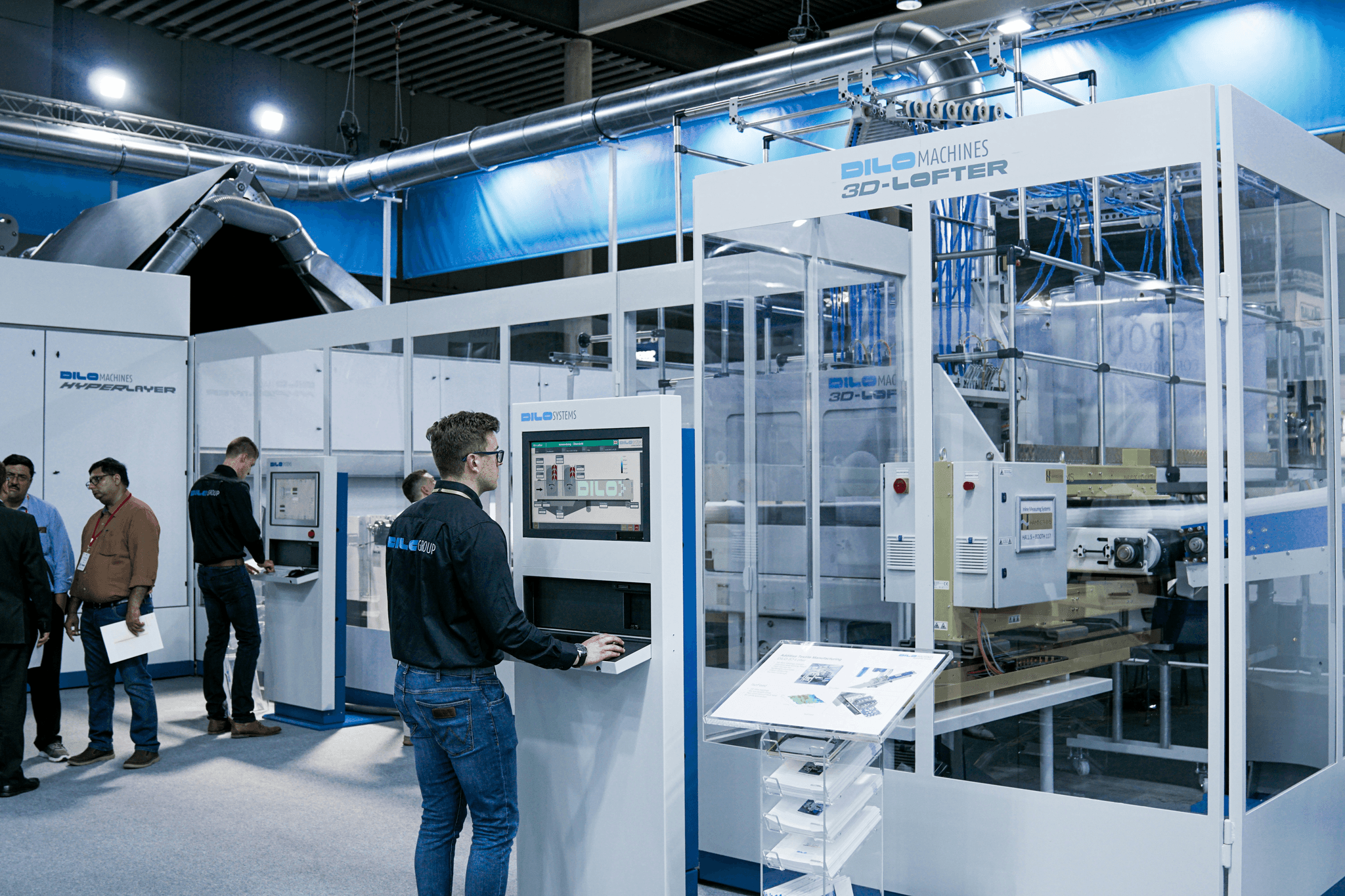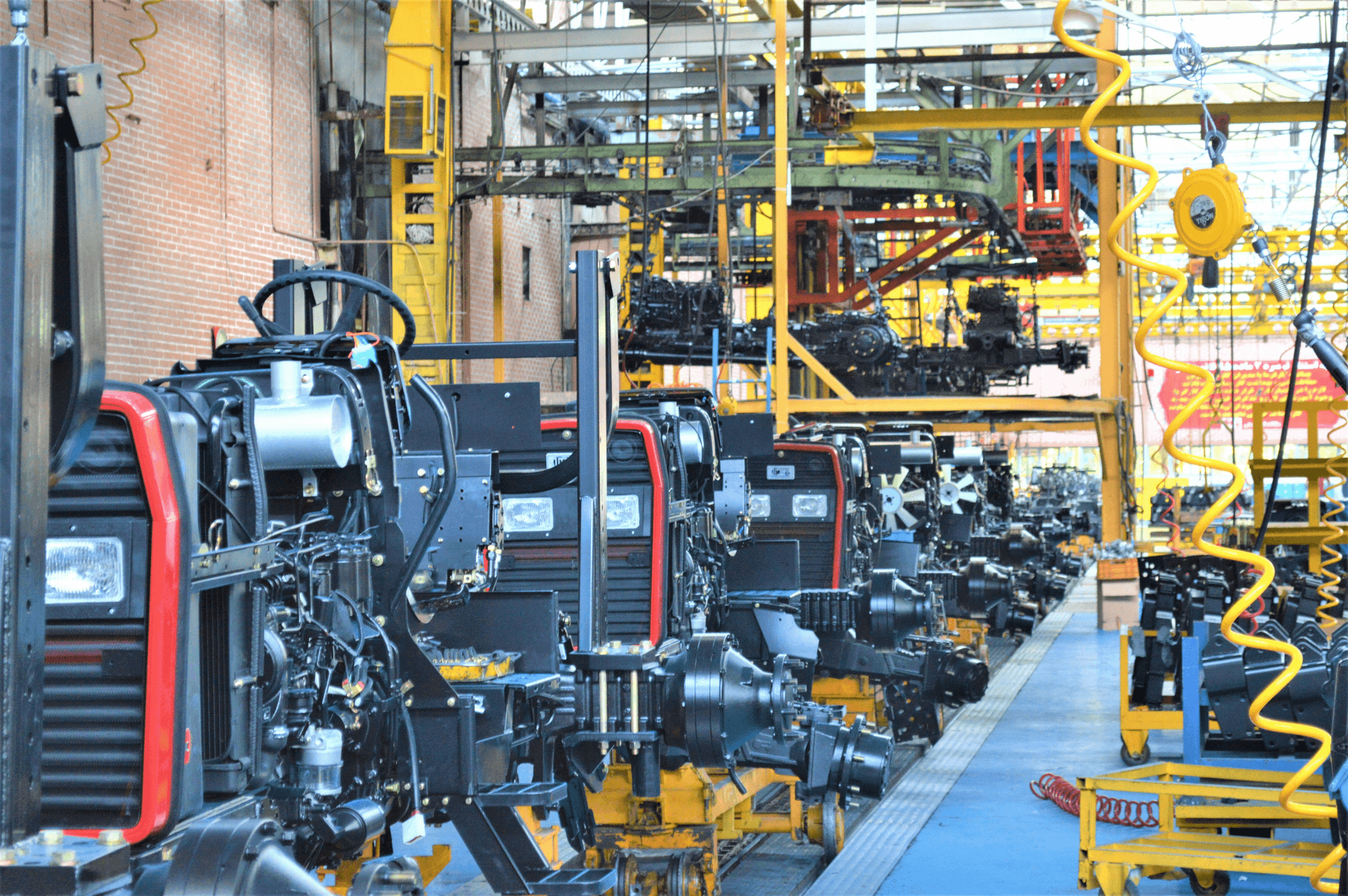Introduction

Navigating the vast world of Chinese manufacturing companies can be both exciting and daunting. As one of the largest manufacturing hubs globally, China boasts a diverse range of industrial manufacturing companies that cater to various sectors, from electronics to textiles. Understanding this landscape is crucial for businesses looking to leverage manufacturing technology and establish successful partnerships.
Understanding Chinese Manufacturing Landscape
The Chinese manufacturing landscape is characterized by its sheer scale and rapid evolution, with countless manufacturing suppliers offering a myriad of services. From cutting-edge technology in production processes to traditional craftsmanship found in clothing factories in China, there's something for every type of product manufacturing need. Recognizing the nuances within this landscape can help businesses make informed decisions about which manufacturers align with their goals.
Importance of Choosing the Right Partner
Choosing the right partner among numerous industrial manufacturing companies can significantly impact your business's success. A reliable partner not only ensures quality production but also fosters innovation through collaboration, ultimately enhancing your brand’s reputation in the market. The right partnership can streamline your supply chain, reduce costs, and improve time-to-market for your products.
Key Factors for Evaluation
When evaluating potential partners within the realm of Chinese manufacturing companies, several key factors come into play. Assessing their production capabilities, quality control measures, and compliance with industry standards are essential steps in ensuring that you select a trustworthy supplier. Additionally, understanding their communication style and cultural practices can further enhance collaboration and lead to long-lasting relationships.
Researching Reputable Chinese Manufacturing Companies

Finding the right partner among the myriad of Chinese manufacturing companies can feel like searching for a needle in a haystack. However, with the right approach, you can sift through the options and discover reputable manufacturers that align with your product needs. This section will guide you through effective strategies for identifying trustworthy industrial manufacturing companies.
Exploring Online Directories
Websites like Alibaba, Made-in-China, and Global Sources provide extensive listings of manufacturers across various sectors, including clothing factories in China. These platforms allow you to filter by product type, location, and even certifications, making it easier to find suitable manufacturing suppliers for your specific needs.
When using online directories, pay attention to company ratings and reviews from previous clients; this can offer valuable insight into their reputation and reliability. Additionally, many directories provide information on the manufacturing technology employed by these companies—essential for ensuring they meet modern standards in production processes. By leveraging these resources effectively, you can uncover potential partners who are both capable and trustworthy.
Utilizing Trade Shows for Networking
Trade shows serve as bustling hubs for industry professionals looking to connect with reputable manufacturing suppliers face-to-face. Events such as the Canton Fair or China International Industry Fair showcase numerous industrial manufacturing companies under one roof—making them an ideal opportunity to evaluate potential partners personally. Here you can observe their products firsthand and engage in meaningful discussions about their capabilities in product manufacturing.
Networking at trade shows also allows you to build relationships that extend beyond mere transactions; these connections can lead to long-term partnerships based on trust and mutual understanding. Don't forget to gather business cards and brochures from exhibitors that pique your interest; this will help you remember key details when evaluating different manufacturers later on. Plus, attending workshops or seminars at these events can deepen your knowledge of current trends in manufacturing technology.
Considering Recommendations and Reviews
When venturing into the world of Chinese manufacturing companies, there's no substitute for good old-fashioned word-of-mouth recommendations. Reach out within your network or industry associations; chances are someone has experience working with reliable industrial manufacturing companies that they would gladly share with you. Personal referrals often provide insights that online research simply cannot match regarding quality control measures or customer service experiences.
In addition to personal recommendations, don't overlook online reviews on platforms like Trustpilot or Google Reviews—these testimonials offer a glimpse into other clients' experiences with specific suppliers. Take note of recurring themes in feedback regarding their compliance with standards or effectiveness during the manufacturing process; this information is crucial when narrowing down your options among various clothing factories in China or other sectors. Ultimately, combining recommendations with thorough research will empower you to make an informed decision about which manufacturer best suits your needs.
Evaluating Manufacturing Technology and Processes

When it comes to selecting the right manufacturing partner, evaluating their technology and processes is crucial. The landscape of Chinese manufacturing companies is vast, and understanding the intricacies of their manufacturing processes can make or break your product's success. By diving deep into their production capabilities, quality control measures, and compliance with industry standards, you can ensure that you're making a well-informed decision.
Assessing Production Capabilities
The first step in evaluating a potential partner involves assessing their production capabilities. Look for industrial manufacturing companies that not only have advanced machinery but also showcase flexibility in adapting to various product manufacturing needs. For instance, if you're considering clothing factories in China, inquire about their ability to handle different fabric types and styles—this will give you insight into whether they can meet your specific requirements.
Moreover, it's essential to analyze the scale of production these manufacturers can achieve. Can they meet large orders without compromising quality? Understanding the capacity for mass production versus custom orders will help you gauge whether they align with your business goals.
Lastly, don't forget to check for any innovative technologies they might employ within their manufacturing process. Companies that leverage automation or smart manufacturing techniques often have an edge in efficiency and consistency—factors that are vital when working with reputable Chinese manufacturing companies.
Understanding Quality Control Measures
Quality control is non-negotiable in the realm of product manufacturing; after all, nobody wants to deal with returns or dissatisfied customers! Investigate how potential partners implement quality assurance throughout their processes. Many reliable industrial manufacturing companies utilize strict quality control measures at every stage—from raw material inspection to final product testing—to ensure consistency and reliability.
You should also inquire about certifications related to quality management systems such as ISO 9001 or other industry-specific standards relevant to your products. These certifications indicate a commitment to maintaining high-quality outputs across all operations—a hallmark of trustworthy Chinese manufacturing companies.
Additionally, consider asking for sample products before committing fully; this allows you to evaluate not just aesthetics but also functionality and durability firsthand. A manufacturer’s willingness to provide samples reflects confidence in their quality control measures—an encouraging sign when navigating the sea of potential suppliers.
Importance of Compliance with Standards
Compliance with international standards is another critical factor when evaluating potential partners among Chinese manufacturing suppliers. Ensuring that a company adheres to safety regulations and environmental guidelines helps protect both your brand reputation and customer trust. This aspect becomes especially important if you're planning on exporting goods internationally where regulatory scrutiny may be heightened.
Researching whether these manufacturers comply with relevant industry standards (like RoHS for electronics or OEKO-TEX for textiles) will save you from future headaches associated with non-compliance issues down the line. Moreover, compliance demonstrates a manufacturer's commitment not only towards legal obligations but also towards ethical practices—a characteristic that's increasingly becoming a priority for consumers today.
Lastly, keeping abreast of changes in regulations affecting your industry can be beneficial as well; this ensures that both you and your chosen partner remain aligned on compliance matters throughout your collaboration journey. After all, choosing a partner who understands these nuances will ultimately lead you toward smoother sailing through the complex waters of international trade!
Investigating Specialized Manufacturing Suppliers

In today's global economy, finding the right specialized manufacturing suppliers is crucial for businesses looking to thrive in competitive markets. The landscape of Chinese manufacturing companies offers a wealth of options, but not all are suited to every business need. By honing in on niche markets and services, companies can ensure they partner with the right manufacturing suppliers who align with their unique product requirements and quality standards.
Identifying Niche Markets and Services
The first step in identifying specialized manufacturing suppliers is understanding the specific niche markets that cater to your product needs. For instance, if you’re in the apparel industry, exploring clothing factories in China that focus on sustainable practices or high-tech fabrics might be beneficial. Similarly, industrial manufacturing companies may offer specialized services such as precision machining or custom tooling that can enhance your production capabilities.
Once you’ve pinpointed your niche, it’s important to evaluate the range of services offered by potential partners. Many Chinese manufacturing companies have diversified their offerings to include advanced manufacturing technology such as automation and robotics, which can streamline your production process significantly. By selecting suppliers who excel in these areas, you can achieve greater efficiency and innovation within your supply chain.
Exploring Successful Case Studies
A great way to gauge the effectiveness of potential partners is by exploring successful case studies from previous collaborations with other businesses. Look for examples where specific Chinese manufacturing companies have delivered exceptional results through tailored solutions that meet unique client demands. These case studies often highlight how particular manufacturing processes were optimized for efficiency or how innovative techniques were applied to overcome challenges.
Additionally, examining these success stories provides insights into how different manufacturers handle issues like quality control and compliance with international standards—critical factors when evaluating potential partners. Understanding these dynamics will enable you to make informed decisions about which industrial manufacturing companies align best with your own operational goals and values.
Comparing Pricing and Contracts
When it comes time to compare pricing among various specialized suppliers, it’s essential not only to look at costs but also at what those costs entail regarding service quality and delivery timelines. Some manufacturers may offer lower prices but compromise on quality or fail to meet deadlines—turning what seemed like a bargain into a costly mistake down the road. Therefore, thorough due diligence is paramount when evaluating contracts from different Chinese manufacturing companies.
In addition to pricing structures, scrutinizing contract terms is vital for ensuring transparency throughout your partnership journey. Ensure that all aspects of the agreement are clearly outlined—from payment schedules to penalties for non-compliance—to avoid any unexpected surprises later on. Ultimately, a well-negotiated contract can foster a strong relationship between you and your chosen manufacturing suppliers while setting clear expectations from both sides.
The Role of Due Diligence

When venturing into partnerships with Chinese manufacturing companies, due diligence is not just a checkbox; it’s the foundation for a successful collaboration. This process involves thorough research and assessment to ensure that the manufacturing suppliers you choose align with your business goals and standards. A well-executed due diligence strategy can save you from potential pitfalls, ensuring that your product manufacturing journey is smooth and efficient.
Importance of Background Checks
Conducting background checks on potential partners is critical in the realm of industrial manufacturing companies. These checks help unveil a company’s track record, financial stability, and reputation within the industry. By understanding their history and previous collaborations, you can gauge whether they possess the necessary experience in manufacturing technology that meets your specific needs.
Engaging Local Legal Expertise like AC&E
Navigating the complexities of Chinese regulations can be daunting without local legal expertise like AC&E by your side. These professionals understand the nuances of contracts, labor laws, and compliance requirements unique to Chinese manufacturing companies. Their insights will not only protect your interests but also facilitate smoother negotiations with potential manufacturing suppliers.
Understanding Company Structure and Operations
A clear understanding of a partner's company structure and operations is essential when dealing with clothing factories in China or any other type of manufacturer. Knowing who makes decisions within the organization helps streamline communication and fosters better relationships throughout the manufacturing process. Additionally, evaluating their operational efficiency can reveal whether they are equipped to handle production demands while maintaining quality standards.
Communication and Relationship Building

Navigating the world of Chinese manufacturing companies requires more than just a solid product idea; it demands effective communication and relationship-building strategies. Establishing clear channels of communication can be the difference between a successful partnership and a frustrating experience. By prioritizing open dialogue, both parties can ensure that expectations are met, misunderstandings are minimized, and the manufacturing process runs smoothly.
Establishing Clear Channels of Communication
In any collaboration with industrial manufacturing companies, establishing clear channels of communication is paramount. This means not only identifying primary points of contact but also utilizing various communication tools to facilitate ongoing discussions—be it emails, video calls, or instant messaging platforms. Regular updates and feedback loops can help mitigate issues early on, ensuring that all stakeholders are aligned throughout the product manufacturing journey.
Moreover, it's essential to consider time zone differences when working with Chinese manufacturing suppliers. Scheduling regular check-ins at mutually agreeable times fosters transparency and builds trust between partners. This proactive approach to communication can lead to more productive interactions and ultimately enhance the overall efficiency of your collaboration.
Negotiating Terms and Expectations
Once you've established your communication channels, it's time to dive into negotiating terms and expectations with your chosen manufacturing companies. Clarity in contracts is key; outline every detail from pricing structures to delivery timelines so that there are no surprises down the road. Being upfront about your needs regarding quality control measures will also help ensure that the final product meets your specifications.
Negotiation is an art form—especially when dealing with clothing factories in China where cultural nuances may come into play. It’s beneficial to approach negotiations with flexibility while remaining firm on critical aspects like compliance with standards or production capabilities. This balance will not only strengthen your position but also convey respect for your partner's business practices.
Importance of Cultural Understanding in Collaborations
Understanding cultural differences is crucial when collaborating with Chinese manufacturing companies or any international partners for that matter. Familiarizing yourself with local customs, business etiquette, and negotiation styles can significantly influence how effectively you build relationships within this landscape. For example, recognizing the importance of building rapport before diving into business discussions can set a positive tone for future interactions.
Moreover, being aware of potential language barriers can help you navigate conversations more smoothly; consider hiring bilingual staff or using professional translation services during critical meetings or negotiations involving complex terms related to manufacturing technology or processes. Such efforts demonstrate respect for your partner's culture while enhancing mutual understanding—a vital component in fostering long-term partnerships.
Ultimately, investing time in effective communication and relationship-building strategies will yield dividends as you navigate the intricate world of Chinese manufacturing suppliers—from securing reliable partners to optimizing production outcomes.
Conclusion
Navigating the world of Chinese manufacturing companies can seem daunting, but with a strategic approach, you can find the right partners to elevate your product manufacturing efforts. By following the outlined steps—from researching reputable manufacturing suppliers to evaluating their technology and processes—you'll be well-equipped to make informed decisions. Remember, the goal is not just to find any partner but to establish a relationship that fosters mutual growth and success.
Summarizing Key Steps in Partnership Selection
First and foremost, conducting thorough research on various industrial manufacturing companies is crucial. Utilize online directories, trade shows, and personal recommendations to compile a list of potential partners that align with your needs. Once you have this shortlist, focus on assessing their production capabilities and quality control measures; these factors will ultimately determine the success of your product manufacturing journey.
Additionally, don't overlook the importance of due diligence when selecting from among Chinese manufacturing companies. Engaging local legal expertise can help ensure compliance with regulations while clarifying company structures and operations. Finally, remember that clear communication channels are essential for establishing expectations and building trust throughout your collaboration.
The Value of Long-Term Relationships with Partners
Building long-lasting relationships with your chosen manufacturing suppliers can yield significant benefits over time. When you invest in nurturing these partnerships, you create an environment where both parties feel valued and understood—leading to better communication and collaboration on future projects. Moreover, as trust develops over time, you'll likely find increased flexibility in negotiations regarding pricing or production schedules.
Long-term relationships also allow for continuous improvement in the manufacturing process itself; as both sides learn from one another’s strengths and weaknesses, they can adapt more effectively to market changes or technological advancements. This synergy not only enhances efficiency but also contributes positively to innovation within product development cycles. In an ever-evolving landscape like that of clothing factories in China, cultivating such connections is invaluable.
Final Thoughts on Navigating the Chinese Market
In summary, navigating the intricate world of Chinese manufacturing companies requires careful planning and execution across multiple facets—from initial research through ongoing relationship management. The right partner can significantly impact your business's success by providing access to advanced manufacturing technology while ensuring adherence to quality standards throughout production processes. As you embark on this journey into product manufacturing within China's vast market landscape, remain adaptable and open-minded; after all, flexibility is key in today’s dynamic industrial environment.
Ultimately, understanding cultural nuances will further enhance your collaborations—so take the time to appreciate what makes working with Chinese suppliers unique! With thoughtful preparation and commitment to building strong partnerships, you're well-positioned for success in this vibrant market.
